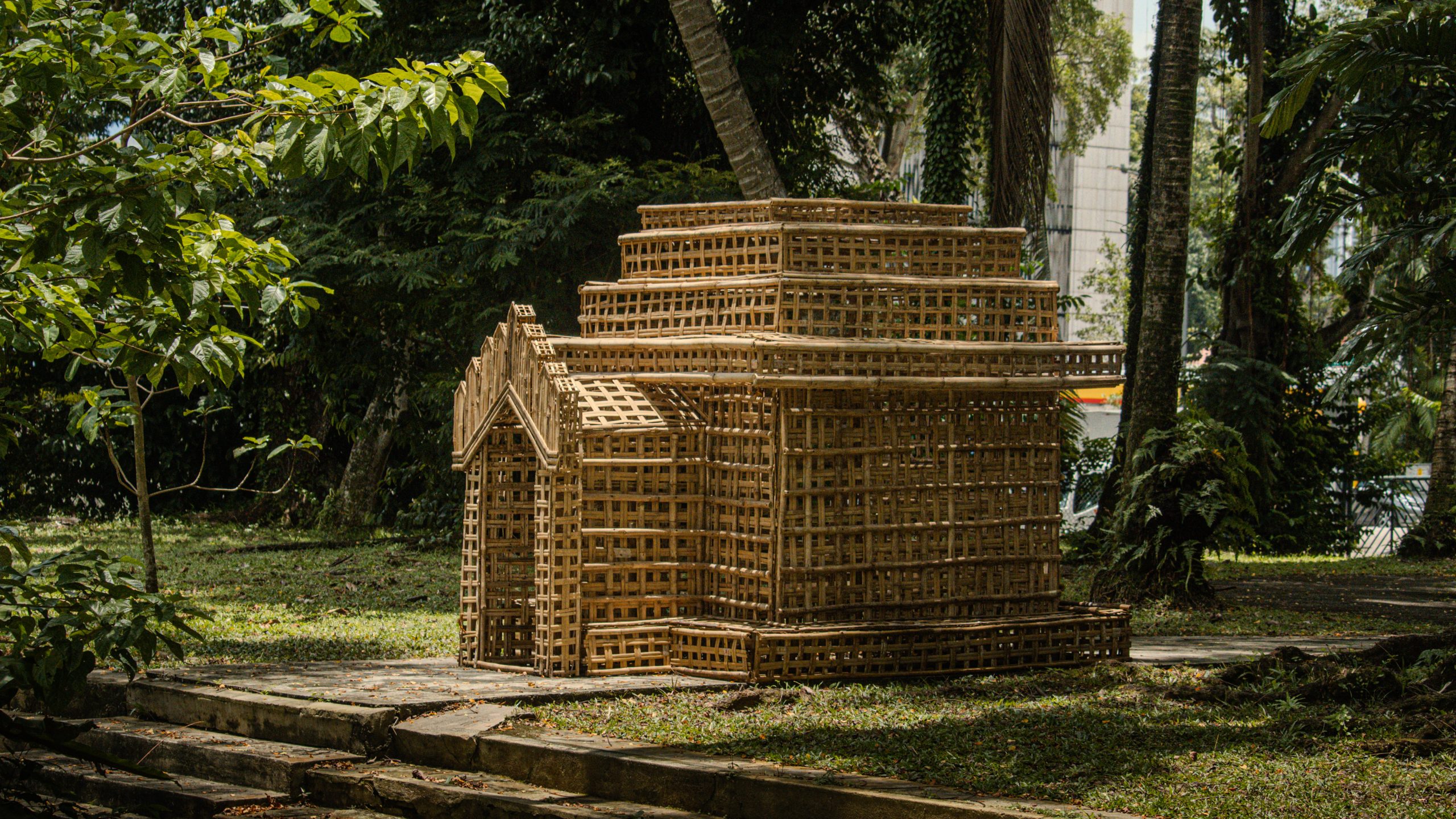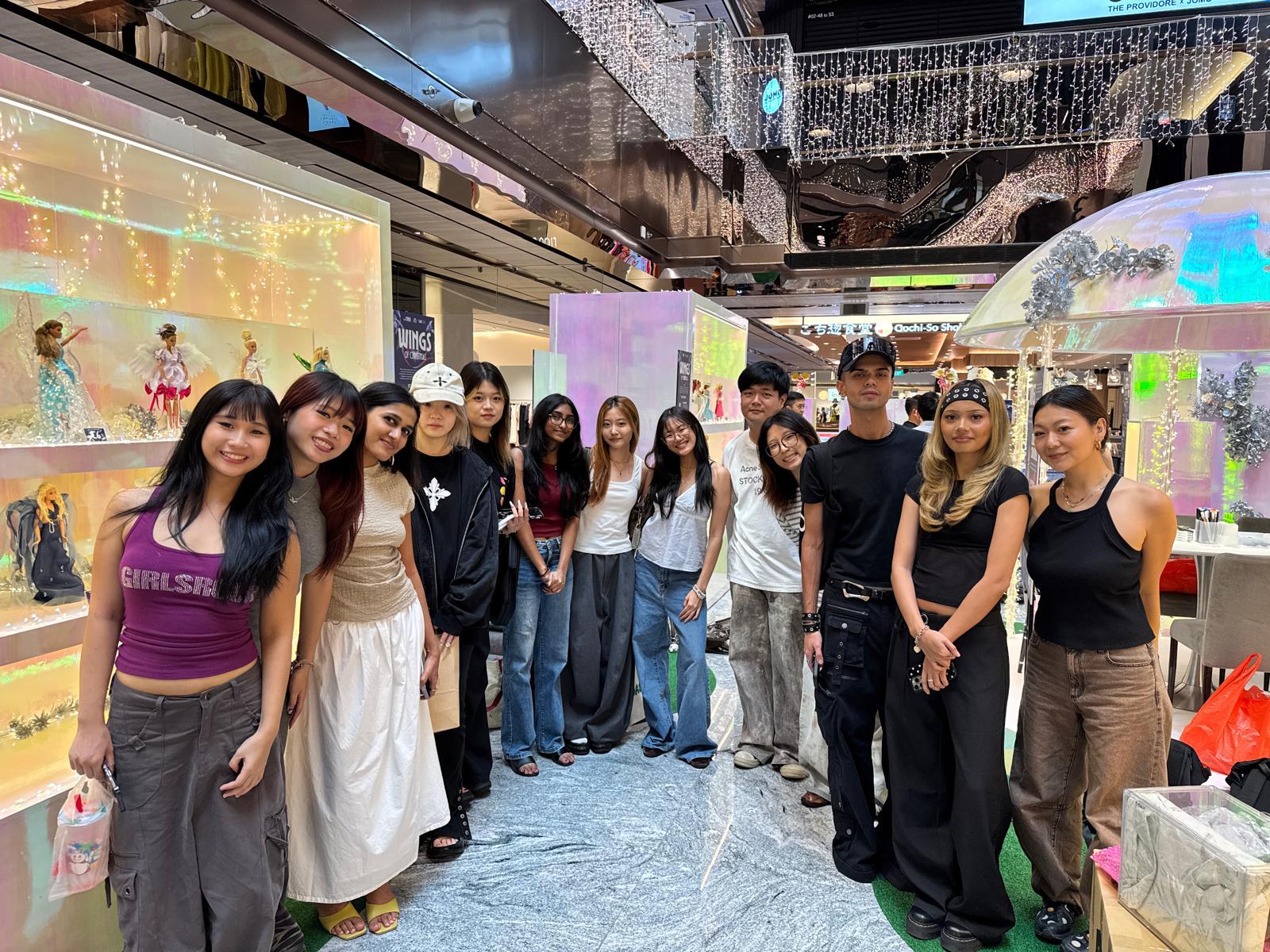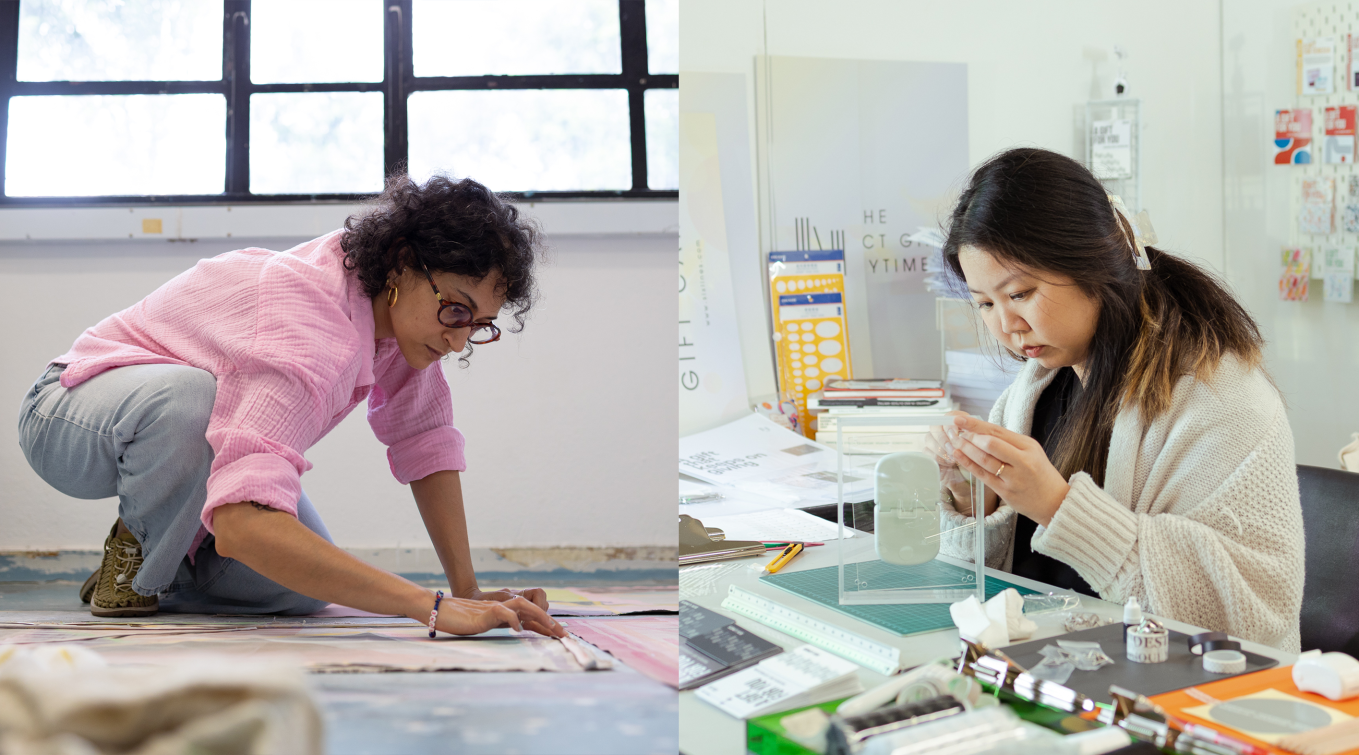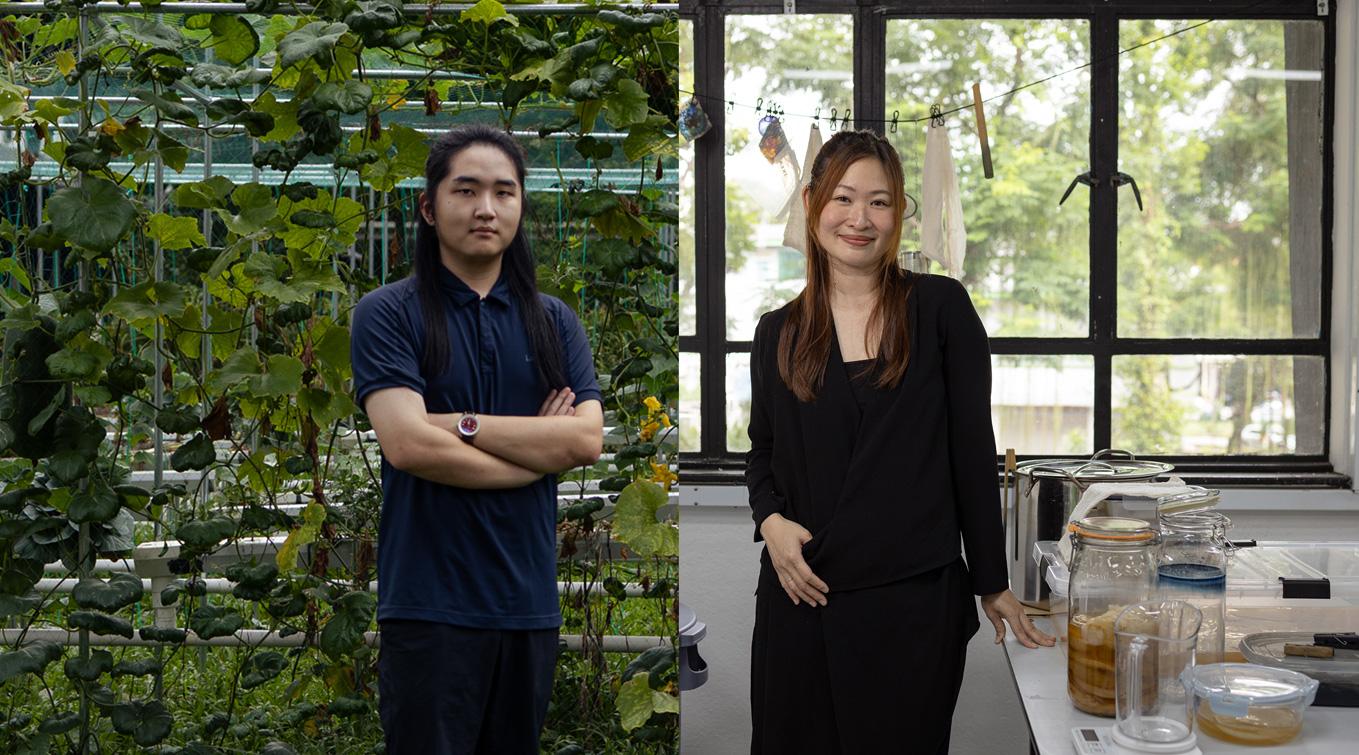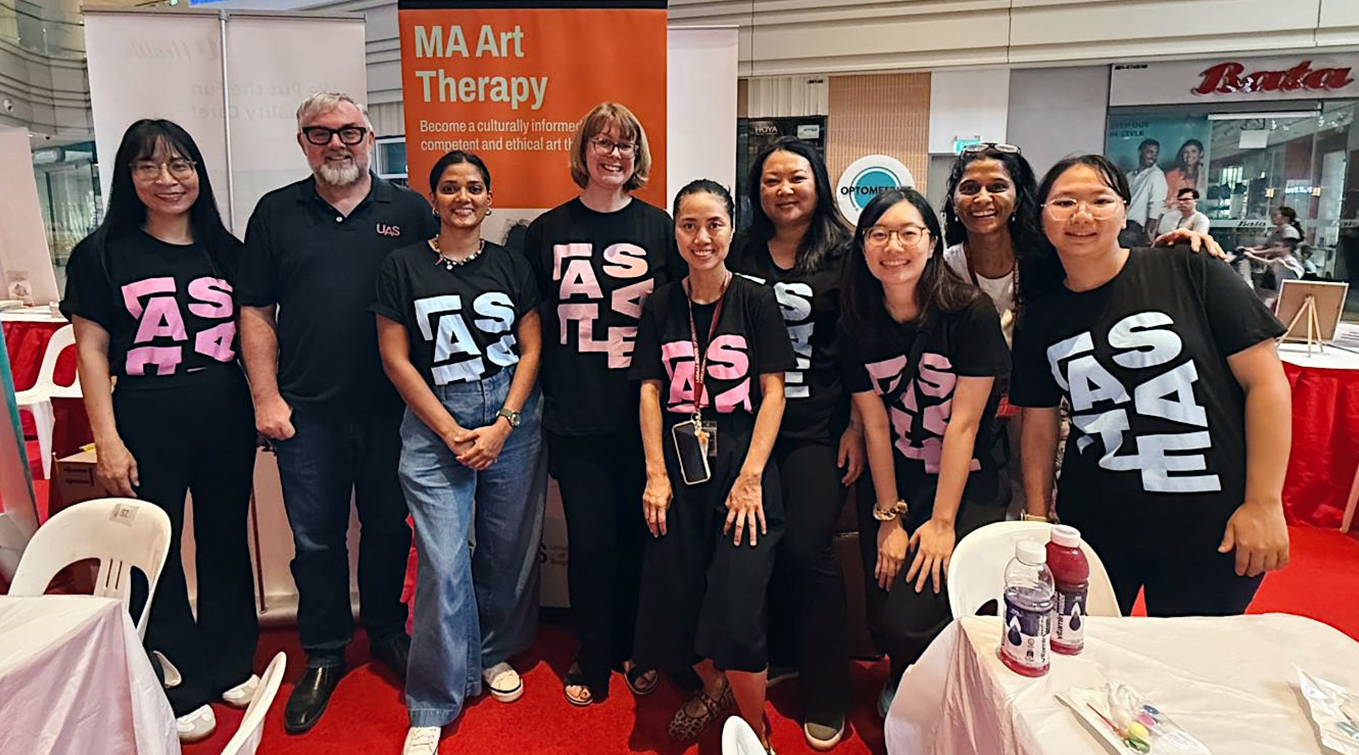In conversation with: Alex Christiaan Koen on culturally-aware therapeutic training

Alex Christiaan Koen came from an established background in counselling prior to pursuing his MA in Art Therapy at LASALLE College of the Arts. He had originally trained in psychology in his native South Africa and since 2014, has worked extensively as a registered specialist wellness counsellor in private, hospital, community, group, school and individual settings.
After Alex became interested in expressive therapies, particularly art psychotherapy, he began an international search for an art psychotherapy programme that could suit his needs as a South African whose work requires a culturally sensitive lens. When an art therapist colleague told him about the MA Art Therapy programme at LASALLE, he was immediately drawn to it.
“The MA Art Therapy programme is one-of-a-kind in the world in my humble opinion, as it not only teaches art therapy, but also frames its teaching within a local context, allowing me to see how Western concepts of therapy and psychotherapy can be adapted and adjusted to speak to the clients we serve, creating a very individualised approach,” explains Alex.
We asked Alex to share the highlights of his art therapy training at LASALLE and the many professional development opportunities he experienced.
In the two years here, you had several opportunities to present or host workshops at professional symposiums and conferences. How were those experiences like for you, how might they have impacted your professional practice?
They were so rewarding and I’m humbled to have been part of such an amazing set of collaborations. It speaks to the heart that my Programme Leader, Ronald Lay, and lecturers Emylia Safian and Daniel Wong have for their students. They noticed my desire and drive to know more about art therapy and provided me with multiple wonderful opportunities during our two years together.
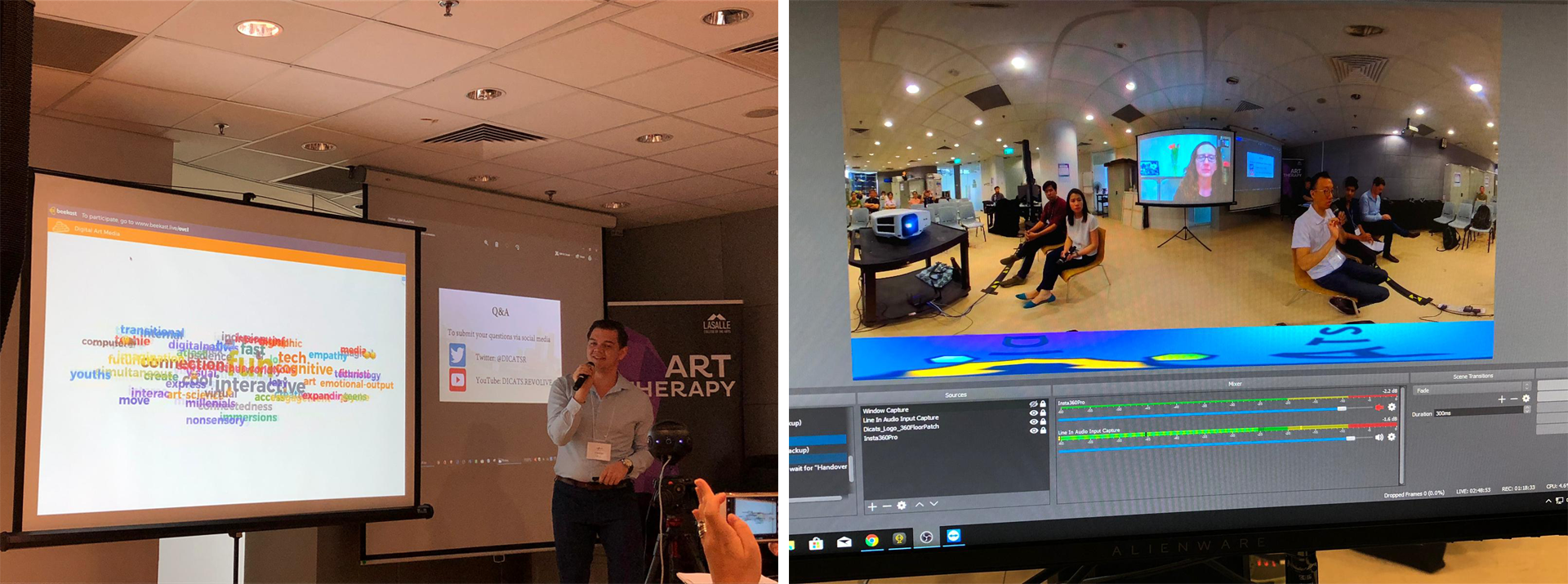
Alex Christiaan Koen presenting at DICATS 2019 (left); a glimpse of the submersive technologies used in their presentations (right).
The 2019 Digital International Creative Arts Therapies Symposium (DICATS) was my introduction to the international stage. LASALLE played host to DICATS’s Singapore portion of the 24-hour event alongside international partners such as Drexel University in Philadelphia, the University of Roehampton in London and industry experts from Los Angeles, London, Philadelphia and Vancouver. I presented my works and thoughts on augmented reality and its practical uses within contemporary art psychotherapy.
For the 50th Annual American Art Therapy Association Conference in 2019, I was able once more to showcase my work as a part of a team with registered art therapist Sze-Chin Lee. Boarding the plane to Kansas, USA, I felt like Dorothy on her way to the Land of Oz. This experience furthered my professional development by affording me the opportunity to network and gain contacts from the greater art therapy community. I connected with PhD programme leaders, who not only found my work interesting, but took note of my love for the discipline. It gave me insights into how I can contribute and reinvest the energy and guidance my lecturers have invested in me. It’s been almost a year since this event, but the experience has been so informative that it has remained vivid in my memory.

Alex Christiaan Koen presented a paper on ‘Augmented Soft Spaces’ at the 50th American Art Therapy Association Conference in 2019.
The MA Art Therapy programme also hosted a week-long overseas student trip to Bali where you provided two open art studio sessions for men living with mental illness at Rumah Berdaya Denpasar. What were the highlights and takeaways from that experience?
It was yet another wonderful opportunity provided to us, rich with experiences and learning, that made me fall in love with Bali and her people. Rumah Berdaya Denpasar is such a phenomenal example of human resilience, creativity and humility. It was phenomenal to simply see the wonderful work of creative expression taking place as we had two open art studio sessions with these amazing men. It provided me with opportunities to be still and gain insights into the benefits of taking care of one’s body, mind and also spirit. This was further augmented with three amazing workshops with artist David Trevelyan, who added an extra layer of learning and provided his own studio as a complementary space of reflection for us.
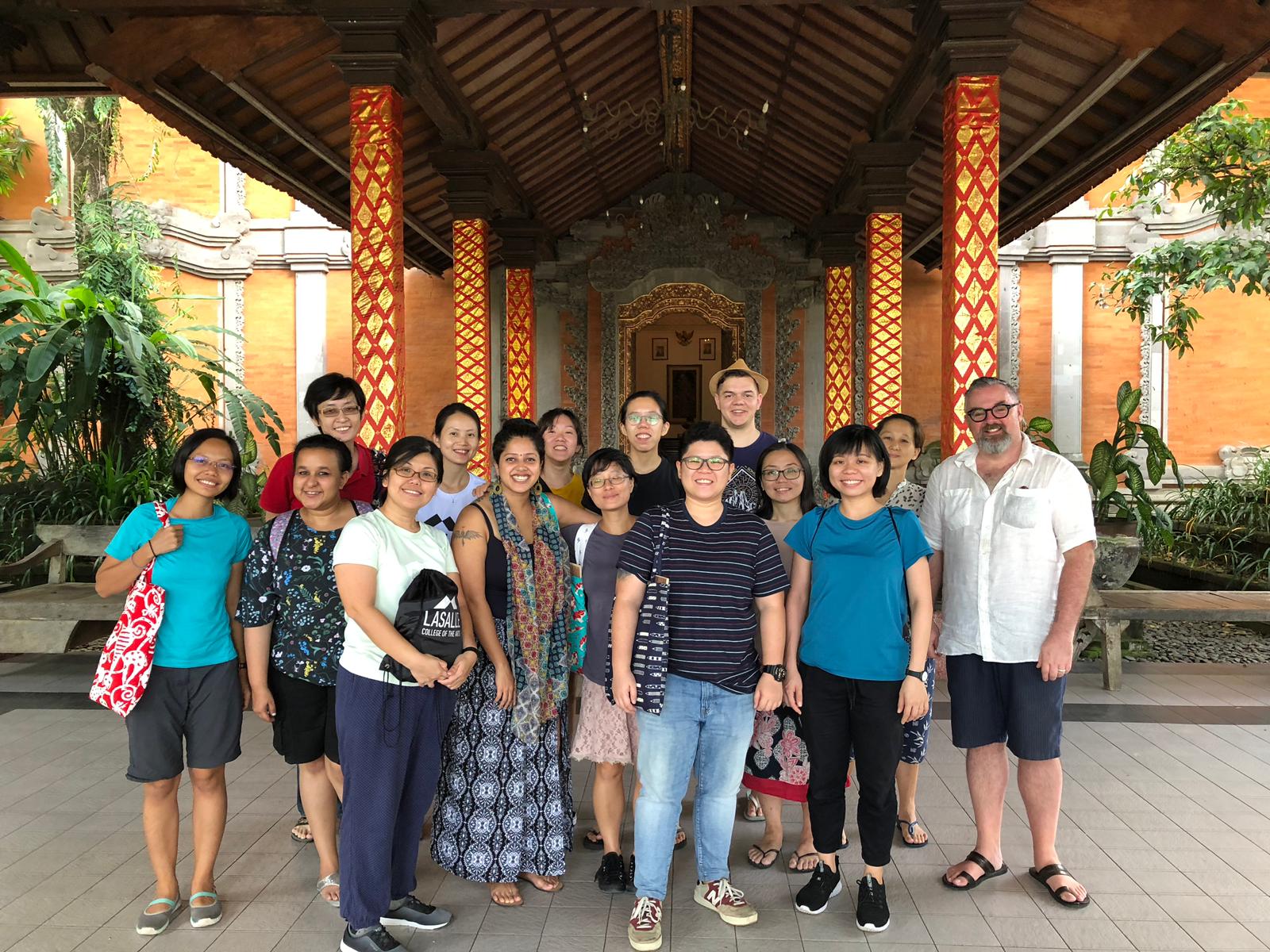
Alex (back row, fourth from right), his classmates and Programme Leader Ronald Lay (first from right) in Bali.
Are there any other highlights from your two years in LASALLE that you cherish?
Where do I begin? The highlight closest to my heart would be my cohort, populated with brilliant and diverse peers from across the globe. I’ve learned so much from each of my classmates and how they approached their clinical work, which has resulted in many proposals and collaborations. This is a testament to the extent by which the programme has successfully created a safe space for students to learn more about themselves and art psychotherapy, as well as develop real and authentic relationships.
What projects do you have in the pipeline?
I have a few projects in development. I can share that I’ve been invited to submit a proposal about working with marginalised populations. It will cover inclusivity as an important clinical skill and ethical responsibility, as well as how inclusivity can be taught within an education system. I’ve reached out to Ronald Lay as co-author who could provide useful guidance as he has experience within education settings. Furthermore I’ve joined two amazing mental health service providers in Singapore Thrive Family and Colourfully. Here I’ll be serving adults, adolescents, children, while further growing clinically with my teams.
Any advice for prospective students who want to study MA Art Therapy at LASALLE?
If you’re thinking of applying to the course, I’d recommend you first go for a few sessions of art therapy with a trained and ANZACATA registered art psychotherapist. This will give you a feel and understanding of what the field is, how it’s used as well as a brief introduction to the level of self-reflection needed. Apply with an open mind, a willingness to learn and grow, and you’ll be able to build the foundations for a rewarding career and calling in art therapy. It could be one of the richest and most colourful experiences of your life – it definitely was for me.
Apply now for our postgraduate programmes.




